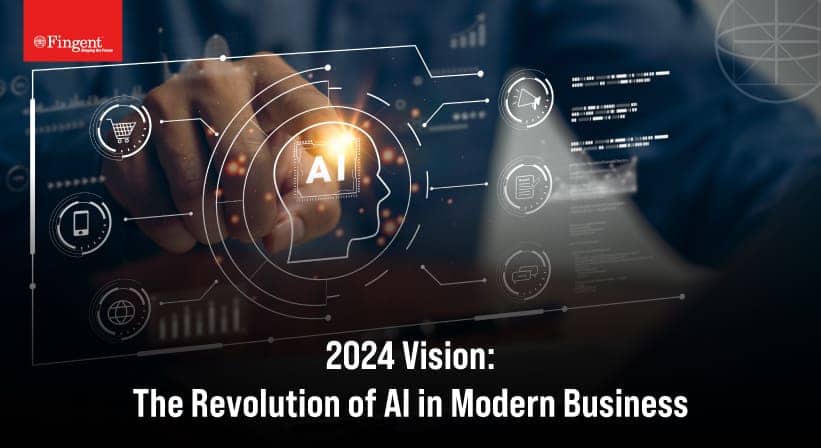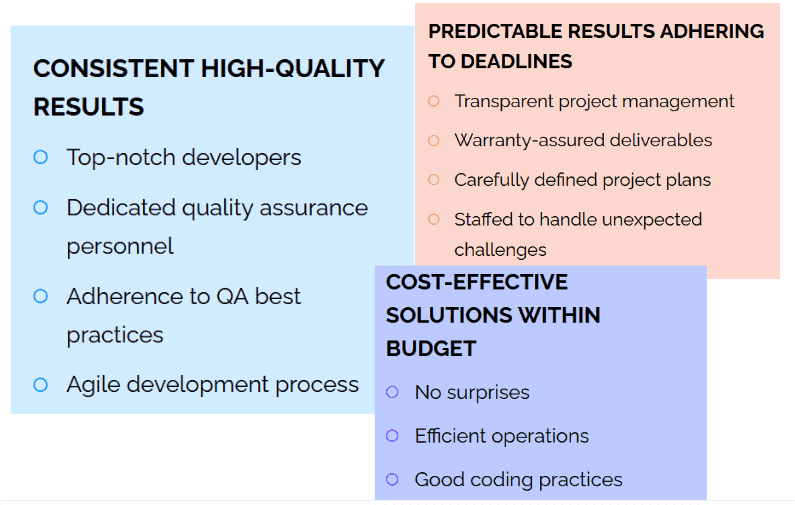Looking Ahead: The Future of Work in the Automotive Industry!
The automobile industry is one of the largest sectors in the world. In just the U.S., the car & automobile manufacturing industry boasts a market size of $104.1 billion.
However, even an ecosystem as large as the automotive industry is not immune to the unprecedented challenges over the last few years. The coronavirus pandemic and subsequent semiconductor chip shortage forced manufacturers to cut 11.3 million vehicles from production in 2021.
In addition to supply chain challenges, automotive manufacturers have contended with labor shortages, shifts in consumer demand, and pressures to create a sustainable work environment.
But, like any resilient industry, the automotive sector has leaned into these new challenges and has begun to address them proactively. Let’s take a closer look at what these hurdles entail and, more importantly, how automotive businesses overcome them via technology’s strategic implementation.
Challenges and Trends Reshaping the Automotive Industry
While many challenges and trends prompt the automotive industry to evolve, three stand out above the rest. These roadblocks include:
1. Ongoing Worker Shortages
Like many other business verticals, the automotive industry has been plagued by worker shortages. Manufacturers need help to fill vacancies at every level of the organization, including line-level staff, decision-makers, and engineers.
This worker shortage has made it nearly impossible to rebuild supply and catch up to runaway consumer demand for new vehicles.
2. Supply Chain Disruptions
Various legs of the automotive supply chain have faced disruptions over the last few years. Of these, the shortfall of semiconductor chips had the most significant impact on production and vehicle inventory.
Unfortunately, many experts predict the shortage will continue well into 2023, if not beyond. It is too late for automakers to prepare for this extended chip shortage. All they can do now is adjust manufacturing strategies to align with consumer demand and cut back production on less popular vehicles.
3. The EV Revolution
Despite these other concerns, the electric vehicle (EV) market continues to grow. By Q4 of 2022, EV sales represented 5.6% of all auto transactions. This percentage doubled from the year prior when EV sales made up just 2.7% of the total auto market.
This statistic demonstrates that consumers are becoming more environmentally conscious and are interested in decreasing their impact on natural resources. Government incentives and tax credits are further contributing to the surging popularity of electric vehicles.
But what does all this have to do with the future of work in the automotive industry? It means that automakers will need to implement new and more sophisticated production processes and hire better talent if they hope to push the envelope in the EV space.
The New Industry Focus: Creating a Sustainable Work Environment
One of the biggest drivers of change in the automotive industry is a global push toward creating a sustainable work environment.
Historically, the automotive sector has been anything but sustainable. Traditional assembly line-based production strategies focus on efficiency at the expense of almost anything else. These tactics result in the consumption of excessive amounts of power and often produce an unnecessary amount of resource waste.
However, the next-generation automotive industry will likely be unrecognizable to the pioneers of the last century. Modern manufacturers are reimagining every aspect of the supply chain, from material sourcing to assembly and distribution. Visionaries and thought leaders are also encouraging a shift away from old-school engineering and development processes in favor of AI-powered practices prioritizing efficiency.
Even the retail sales aspect of the automotive industry is changing. Many dealers are shifting toward online transactions, and some are transitioning increasingly to a made-to-order sales model. The end result is a more agile and less wasteful automotive supply chain.
Technologies that Can Fuel the Auto Sector’s Metamorphosis
The future of work in the automotive industry will focus on sustainability, resilience, and agility while prioritizing efficiency. To realize their aspirations of a sustainable work environment,
industry executives, managers, and workers must embrace leading-edge technologies, including:
1. Predictive Analytics Software
Predictive analytics software will influence numerous aspects of the automotive industry. Organizations interested in forging sustainable work environments can use these analytics tools to identify production waste and increase operational efficiency. Additionally, they can leverage these solutions to create more energy-efficient vehicles that produce fewer greenhouse gasses.
Predictive analytics technologies will also assist with demand forecasting — organizational leaders can use these insights to prioritize in-demand vehicles as they contend with ongoing chip shortages.
2. Automation Tools
Automation tools will prove invaluable amid labor and talent shortages. Businesses in the automotive industry can use automation software to streamline redundant back-office processes and improve communication across the entire supply chain.
Manufacturers can also use automation tools to ramp up production while conserving energy and reducing waste.
3. Machine Learning and AI Solutions
Machine learning and artificial intelligence technologies can transform every link in the automotive industry supply chain. Businesses can use these complementary technologies to optimize raw material sourcing, vehicle distribution, and production.
Because they allow for a more data-driven approach to manufacturing and sales, these technologies can reduce waste while simultaneously creating more agile and resilient supply chains. In turn, this will help keep the costs of vehicles manageable, thereby increasing accessibility to energy-efficient automobiles and EVs.
Read more: AI and ML for Faster and Accurate Project Cost Estimation
Accelerate Your Transformation with Fingent
When your business is in the automotive industry, creating a sustainable work environment should be one of your top priorities. Doing so will help you attract and retain top talent, meet consumer demand for more efficient vehicles, and align your business model with the latest regulations and compliance frameworks.
To achieve these goals, you will need access to purpose-built technologies designed for your business’s unique needs. That’s where Fingent top custom software development company, can help.
Our development experts can create dynamic software for your business. From customer-facing applications to internal solutions that empower your staff to be more productive, we build the software you need to thrive.
To learn more about our wide range of technology development services, connect with Fingent today.
Stay up to date on what's new

Recommended Posts

18 Apr 2024 B2B
Applied AI For Document Processing
"It's becoming increasingly clear that AI is the future, and almost everything else is a sideshow." - World-renowned computer scientist Geoff Hinton AI has taken over almost every aspect of……

10 Jan 2024 B2B
AI Trends Set to Transform Businesses in 2024
In the dynamic realm of modern business, the profound impact of artificial intelligence (AI) continues to unfold, reshaping industries and redefining conventional practices. As we step into 2024, the transformative……

26 Nov 2023 B2B
Finding Success in the Aviation Business with AI
“Aviation is the branch of engineering that is least forgiving of mistakes.” - Freeman Dyson, British-American theoretical physicist and mathematician. The truth in that statement is sobering indeed. The precision……

27 Oct 2023 B2B
Generative AI – Magnifying the Power of AI in Business
Are you sick and tired of performing the same monotonous task every day? Well, if your answer is yes, then Generative Artificial Intelligence can benefit you. Technology is evolving at……
Featured Blogs
Stay up to date on
what's new











